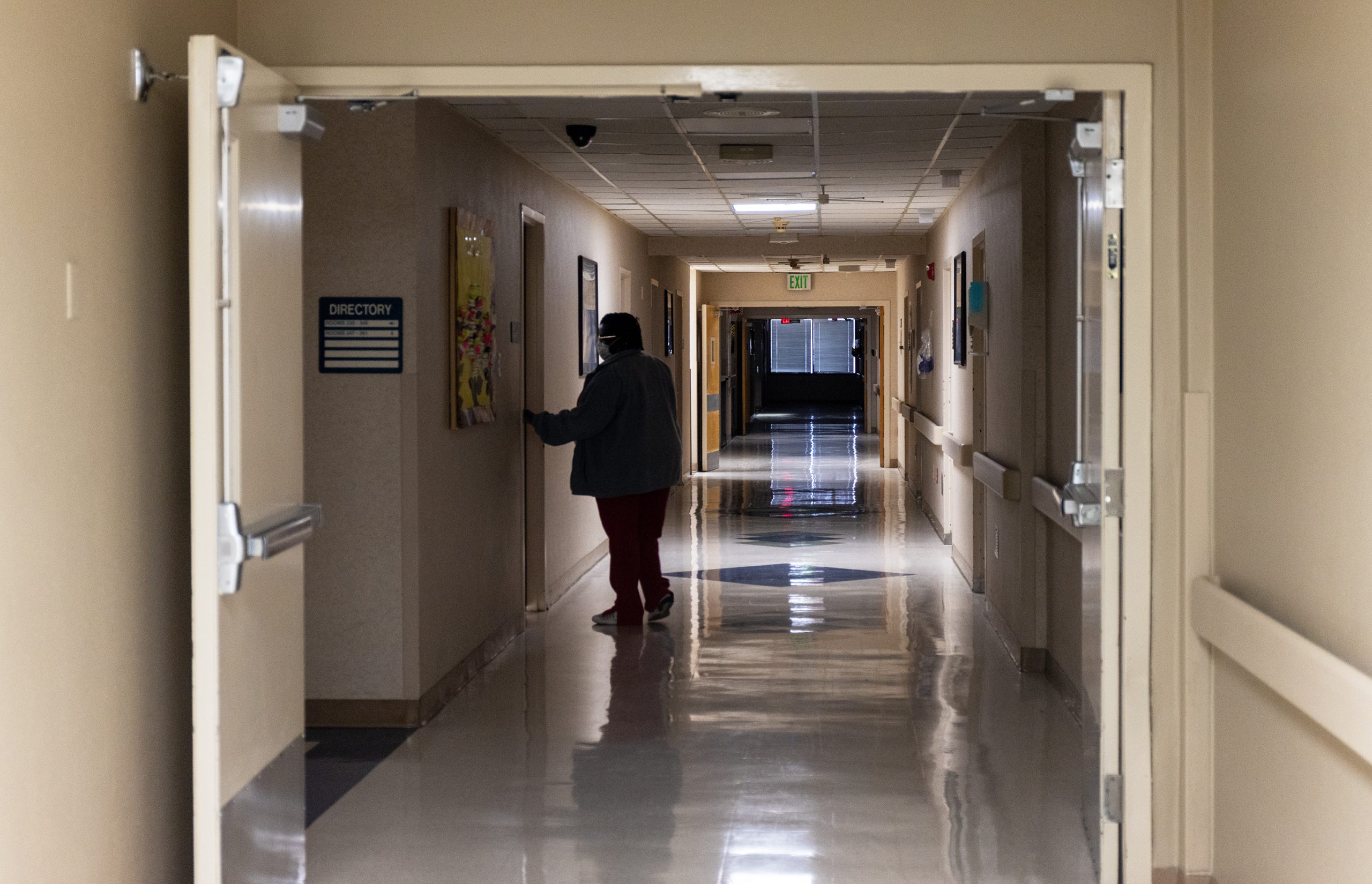Mississippi Today
Lawmakers turn away billions in federal funds as they pour state funds into health care

Lawmakers turn away billions in federal funds as they pour state funds into health care
As the Mississippi Senate recently was considering and passing legislation to provide $103 million for a grant program for the state's beleaguered hospitals, Sen. Angela Hill, R-Picayune, asked a pertinent question.
She wanted to know if the $103 million would provide real help for the hospitals — many of which experts say are in danger of closing.
“Just looking at the totals, it looks to me like these individual hospitals will burn through this pretty fast,” she said during debate of the bill on the Senate floor. “So, I guess my question is was there any thought, if an aggregative amount of $103 million that has been split up by what looks like 100 hospitals or more, could that have had a greater impact in any other shape or form?”
Hill, a fiscal conservative, was looking for ways to get more bang for the buck. If only there were a way to do so.
Senate Medicaid Chair Kevin Blackwell, R-Southaven confessed to Hill that, “We didn't look at any other funding mechanism.”
But both Hill and Blackwell had been told about other options — less than 24 hours earlier on the Senate floor, in fact.
“The most important thing Mississippi can do to help our hospitals is expand Medicaid under the Affordable Care Act,” said Sen. David Blount, D-Jackson. “The choice you are making with this legislation is you put $100 million in the fund and get $100 million, or you put $100 million in a fund allowing Medicaid expansion and you get $1 billion.”
Projections are that it would cost the state about $100 million annually to expand Medicaid to cover primarily the working poor. According to projections, that $100 million would be about the state match needed to pull down more than $1 billion in federal funds annually that Blount referenced.
And based on projections made by the University Research Center, Medicaid expansion would result in much more than $1 billion annually to the state for the first two years of Medicaid expansion. Because of incentives offered by the federal government under COVID-19 relief legislation, it is estimated the state would receive $1.61 billion the first year and $1.64 billion the second year of expansion. After the first two years of expansion, the incentives would go away, but the state still would be receiving more than $1 billion annually in federal funds.
READ MORE: Mississippi leaving more than $1 billion per year on table by rejecting Medicaid expansion
The theory is that the $1 billion would help health care providers, especially hospitals, because they would be treating fewer people with no insurance and no ability to pay.
Hill was not asking her question because she is touting Medicaid expansion. As a conservative Republican, she has long voiced her opposition to Medicaid expansion. Many conservative Republicans, including Gov. Tate Reeves and Speaker Philip Gunn, say they oppose the big government expansion.
And Blackwell could rightfully point out the $103 million being directed to the hospitals is from federal COVID-19 legislation and would not be available in the coming years to provide the required annual state match to expand Medicaid.
But the day before Hill asked her question, Sen. Hob Bryan, D-Amory, told members that Medicaid expansion would not cost the state anything.
Because of the multiplier effect of the federal fund and because of other factors, “the state treasury would make money. In theory there is a state match, but in practice there is not a match at all. In practice, the state treasury is doing without money because of the prohibition on Medicaid expansion.”
Various studies back up Bryan's bold claim.
The 2021 University Research Center study, for instance, found that the 10% matching costs the state must provide if it expanded Medicaid would be more than covered by health care-related savings to the state and new tax revenue generated.
More and more states are reaching the conclusion that Medicaid expansion makes money for them. Forty states have expanded Medicaid, leaving Mississippi behind 80% of the country.
First it was just so-called blue or Democratic states expanding Medicaid under the Affordable Care Act. But in more recent years, red or Republican states have followed suit. States like Montana, Utah, North Dakota and South Dakota have expanded Medicaid. Those that have not, for the most part, are located across the Southeast.
But the number of Southern states not expanding Medicaid also is dwindling. Just in recent days, a Republican-controlled Legislature in North Carolina sent to Democratic Gov. Roy Cooper a bill he signed into law expanding Medicaid.
But instead of expanding Medicaid, Mississippi legislators continue to provide state funds to help hospitals and other health care providers one dollar at a time instead of using that dollar to get at least $9 in federal funds.
“This hospital grant program is putting a Band-Aid on a situation in this state that requires surgery,” said Sen. Derrick Simmons, D-Greenville.
READ MORE: The death of rural hospitals could leave Mississippians ‘sick, sick, sick'
This article first appeared on Mississippi Today and is republished here under a Creative Commons license.
Did you miss our previous article…
https://www.biloxinewsevents.com/on-this-day-in-1935/
Mississippi Today
Renada Stovall, chemist and entrepreneur
Renada Stovall sat on the back deck of her rural Arkansas home one evening, contemplating life when she had a life-altering epiphany…
“I gotta get out of these woods.”
She heard it as clear as lips to her ear and as deep as the trees surrounding her property. Stovall's job as a chemist had taken her all over the country. In addition to Arkansas, there were stints in Atlanta, Dallas and Reno. But she was missing home, her parents and friends. She also knew, she needed something else to do.
“I thought, what kind of business can I start for myself,” said Stovall, as she watered herbs growing in a garden behind her south Jackson home. Some of those herbs are used in her all-natural products. “I know when I lived in Reno, Nevada, where it's very hot and very dry, there really weren't products available that worked for me, my hair, and my skin suffered. I've got a chemistry degree from Spelman College. I took the plunge and decided to create products for myself.”

In 2018, Stovall's venture led to the creation of shea butter moisturizers and natural soaps. But she didn't stop there, and in December 2022, she moved home to Mississippi and got to work, expanding her product line to include body balms and butters, and shampoos infused with avocado and palm, mango butter, coconut and olive oils.
Nadabutter, which incorporates Renada's name, came to fruition.

Stovall sells her balms and moisturizers at what she calls, “pop-up markets,” across the state during the summer. She's available via social media and also creates products depending on what of her ingredients a customer chooses. “My turmeric and honey is really popular,” Stovall added.
“The all-natural ingredients I use are great for conditioning the skin and hair. All of my products make you feel soft and luscious. The shea butter I use comes from West Africa. It's my way of networking and supporting other women. And it's my wish that other women can be inspired to be self-sufficient in starting their own businesses.”





This article first appeared on Mississippi Today and is republished here under a Creative Commons license.
Mississippi Today
On this day in 1954
MAY 17, 1954

In Brown v. Board of Education and Bolling v. Sharpe, the U.S. Supreme Court unanimously ruled that the “separate but equal” doctrine in Plessy v. Ferguson was unconstitutional under the 14th Amendment, which guaranteed equal treatment under the law.
The historic decision brought an end to federal tolerance of racial segregation, ruling in the case of student Linda Brown, who was denied admission to her local elementary school in Topeka, Kansas, because of the color of her skin.
In Mississippi, segregationist leaders called the day “Black Monday” and took up the charge of the just-created white Citizens' Council to preserve racial segregation at all costs.
This article first appeared on Mississippi Today and is republished here under a Creative Commons license.
Mississippi Today
Every university but Delta State to increase tuition this year
Every university in Mississippi is increasing tuition in the fall except for Delta State University.
The new rates were approved by the governing board of the eight universities, the Institutions of Higher Learning Board of Trustees, at its regular meeting Thursday.
The average cost of tuition in Mississippi is now $8,833 a year, a roughly 3% increase from last year. Students can expect to pay tuition ranging from $7,942 a year at Mississippi Valley State University to $10,052 a year at Mississippi State University.
In recent years, universities have cited inflation and rising insurance costs as reasons for the tuition increases. At Thursday's meeting, the board heard a presentation on how property insurance is becoming more expensive for the eight universities as Mississippi sees more tornadoes and storms with severe wind and hail.
READ MORE: Tuition increases yet again at most public universities
But it's an ongoing trend. Mississippi's public universities have steadily increased tuition since 2000, putting the cost of college increasingly out of reach for the average Mississippi family. More than half of Mississippi college students graduated with an average of $29,714 in student debt in 2020, according to the Institution for College Access and Success.
At Delta State University, the president, Daniel Ennis, announced that he will attempt to avoid tuition increases as the regional college in the Mississippi Delta undergoes drastic budget cuts in an effort to become more financially sustainable.
“We will resist tuition increases so that our most economically vulnerable students can continue to have access to the opportunities that a college degree can provide,” he wrote in a memo to faculty and staff on Monday. “We will move beyond basic survival and into a place where we have the capacity to take better advantage of our undeniable strengths.”
Delta State didn't increase tuition last year, either. Officials have been concerned the university is becoming too pricey for the students it serves.
Tuition for the 2024-25 academic year, by school:
- Alcorn State University: $8,105
- Delta State University: $8,435
- Jackson State University: $8,690
- Mississippi State University: $10,052
- Mississippi University for Women: $8,392
- Mississippi Valley State University: $7,492
- University of Mississippi: $9,612
- University of Southern Mississippi: $9,888
This article first appeared on Mississippi Today and is republished here under a Creative Commons license.
-
SuperTalk FM5 days ago
Martin Lawrence making 3 stops in Mississippi on comedy tour
-
Our Mississippi Home4 days ago
Beat the Heat with Mississippi’s Best Waterparks
-
Our Mississippi Home4 days ago
Charlie’s U-Pik: Opening Soon for the Summer Season
-
Mississippi News Video7 days ago
Local dentists offer free dental care in Amory
-
Kaiser Health News4 days ago
Medicaid ‘Unwinding’ Decried as Biased Against Disabled People
-
Mississippi News Video3 days ago
Jackson has a gang problem
-
SuperTalk FM14 hours ago
State auditor cracking down on Mississippians receiving unemployment benefits
-
Mississippi Today7 days ago
On this day in 1968








































